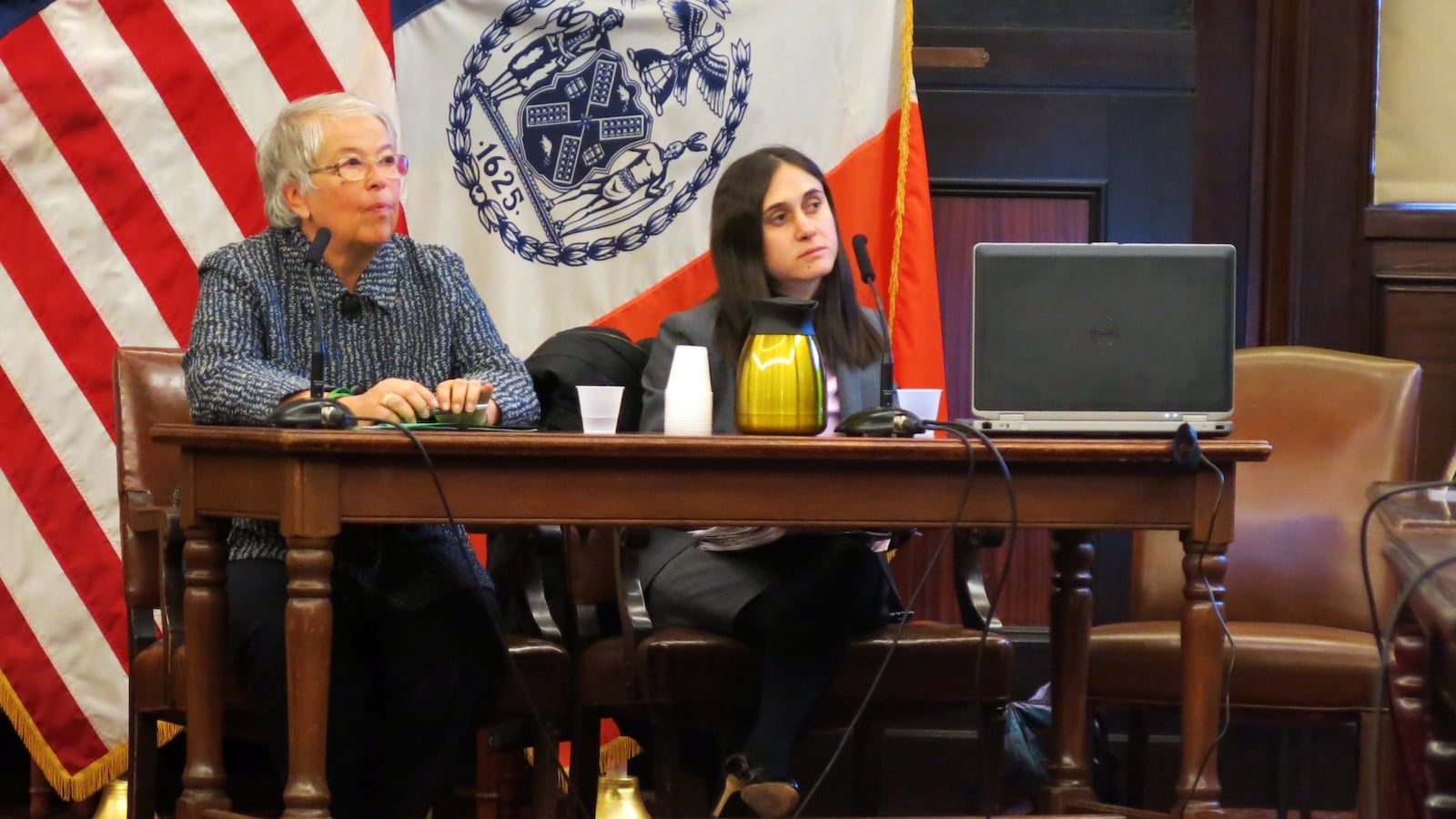Schools Chancellor Carmen Fariña said the city is moving quickly to implement its plan to provide universal pre-kindergarten, though she offered no new details about teacher pay or the inclusion of charter schools on Tuesday.
Speaking at a friendly joint meeting of the City Council’s committees on education and women’s issues, Fariña and Sophia Pappas, the city’s executive director of early childhood education, said the city is working with universities and current pre-K providers to ensure the city has enough space and teachers for next fall.
Fariña and Pappas addressed a number of the challenges facing the city’s pre-K implementation. To expand the pipeline of teachers qualified to teach four-year-olds, Fariña said she is personally encouraging the deans of the city’s schools of education to expand their early childhood classes and certification programs.
“We want the deans to start really pushing for places where people will get jobs,” she said.
Heading off criticism about how space will be allocated to pre-K programs, Fariña also emphasized that principals and community-based organizations have been asked to designate available space themselves. (She offered no specifics about what happens if that volunteered space isn’t enough.)
Those proposal deadlines are approaching quickly. Community organizations looking to operate new pre-K programs must apply by the end of this week, and for public schools that deadline is next week.
Fariña also clarified that the week of intensive training prescribed by the city’s pre-K implementation plan will look the same for current and incoming teachers in both community-based organizations and public schools.
On two points, Fariña and Pappas had less to say. When asked what the city’s stance is on allowing charter schools to be a part of the universal pre-K plan, Fariña said only, “It’s a work in progress.”
Charter schools, which currently cannot receive state funds to offer their own pre-kindergarten classes, have been lobbying strongly for a change, which Gov. Cuomo has endorsed. Responding to Fariña’s comments, New York City Charter School Center CEO James Merriman said today that “it only makes sense” for strong charter schools to be able to serve pre-K students.
“Charter school educators are ready to partner with Mayor [Bill] de Blasio, Speaker [Melissa] Mark-Viverito and the administration to make New York’s expansion of pre-kindergarten the historic success it must be,” he said in a statement.
And when asked about the pay disparity between public school pre-K teachers and teachers working at CBOs, Pappas said the city was focused on “drawing in and keeping the best teachers for these classrooms,” but offered no more information.
“We’re currently working out the details of that plan,” she said.
“I hope you’ll keep that in mind,” new education committee chair Daniel Dromm said.
Filling the jobs created by the plan, and paying those teachers competitively, will be a significant policy challenge, as we detailed last week. Fariña said she was not worried about finding the approximately 2,000 new teachers needed to implement the program, since the city regularly turns away applicants.
Additional details about how the Department of Education will be adapting to accommodate both pre-K and new after-school programs are likely to emerge tomorrow, when a first version of the city budget is released.
But Fariña, speaking under oath, testified that she wasn’t sure exactly what the budget would illuminate, saying that she had not seen de Blasio’s spending proposal yet herself.
Asked what the city would do if state lawmakers didn’t allow the city to go ahead with de Blasio’s plan to tax its highest earners to pay for the pre-K and middle school after-school program expansion, Fariña she was optimistic that de Blasio’s plan would move forward. But she implied — in a way that her boss explicitly has not — that the city is accounting for all possibilities.
“In education, you always have a plan B and if necessary a plan C,” Fariña said. “But we have to be optimistic otherwise they’ll tell us to go right to plan B without giving us a chance to do plan A.”


